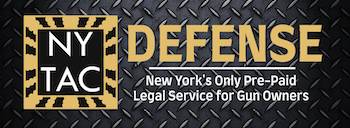Representation.
Securities Fraud
Although there are several criminal statutes that prosecutors can use to bring securities fraud related charges, the most important ones are found within the Securities Act of 1934. The most important of the provisions in the Securities Act of 1934 is Rule 10b-5 codified at 17 CFR 240.10(b)-5. Securities fraud convictions may result in severe sentences. Prison terms can range from 5 years per unlawful transaction, to potentially up to 20 years. Fines of up to $5,000,000 dollars for an individual, $25,000,000 for a company, and restitution may be imposed for certain securities fraud crimes.
If you have been accused of securities fraud in Federal or New York Court our experienced New York Securities Fraud attorneys may be able to help you avoid prison, get your charges reduced or even dismissed. Call our offices today for a free consultation.
Material misrepresentations and omissions make up the factual basis for most accusations of securities fraud. In order to prove that a defendant committed a material misrepresentation securities fraud, the government, generally speaking, must prove that the defendant made or told a lie about or omitted something that was important to the decision making process of purchasing or selling a security, that the victim relied on those lies or omissions and that reliance was reasonable, and that the victim’s belief in the lies or omissions harmed them.
The seminal case on misstatements and omissions is SEC v. Texas Gulf Sulphur Co. In this decision, which is precedent in New York, the United States Second Circuit Court of Appeals explained exactly what a “misstatement or omission” is within the context of securities fraud. The Second Circuit clarified that a in order to find out whether a statement or lack thereof is a “misstatement or omission” the court needs to evaluate what that statement or lack thereof would mean to the average person investing in the market and how it relates to reality. This definition is remarkably broad, so broad that nearly any form of a public statement that could be characterized as deceptive and has the potential to lead to a criminal investigation or securities fraud charges. The misstatement or omission’s content does not even need to relate to the price of stock or other securities, it suffices that what the government characterizes as a plan to execute a fraud and selling stocks, bonds, or other sorts of securities occurs contemporaneously. Incredibly, under limited circumstances, a company can even be criminally liable for securities fraud for statements made by someone who does not even work for the company. All it takes to trigger criminal liability is for someone sufficiently intertwined with the creation of an analysts reports to make a material misrepresentation or omission.
In a securities fraud prosecution, the government must prove a defendant’s omission or misstatement was important to determining whether an average stock owner would make educated assumptions and the significance of those assumptions to the determinations regarding the security transaction. Phrased another way, the question is would the average stock owner have been influenced while considering the entirety of the data available. Non-specific statements of optimism are usually regarded as not material, while a mathematically definite forecast may be actionable.
Defendants can only be convicted of criminal securities fraud if the government can prove beyond a reasonable doubt that that the defendant violated the law willfully. This high standard of intent is required by Section 32(a) of the ’34 act. An intent standard of willfulness requires that the government show the defendant acted on purpose, and the misrepresentation or omission was not caused by accident, carelessness, or mishap.
Our experienced securities fraud attorneys have the best chance of introducing doubt as to whether a criminal securities fraud defendant exhibited the required mental state of willfulness. This is a potent defense to securities fraud and may save a defendant from serving significant prison time.
If you have been accused of securities fraud in New York or Federal Court, our experienced New York Securities Fraud lawyers may be able to help you avoid prison, get your charges reduced or even dismissed. Call our offices today for a free consultation.

















